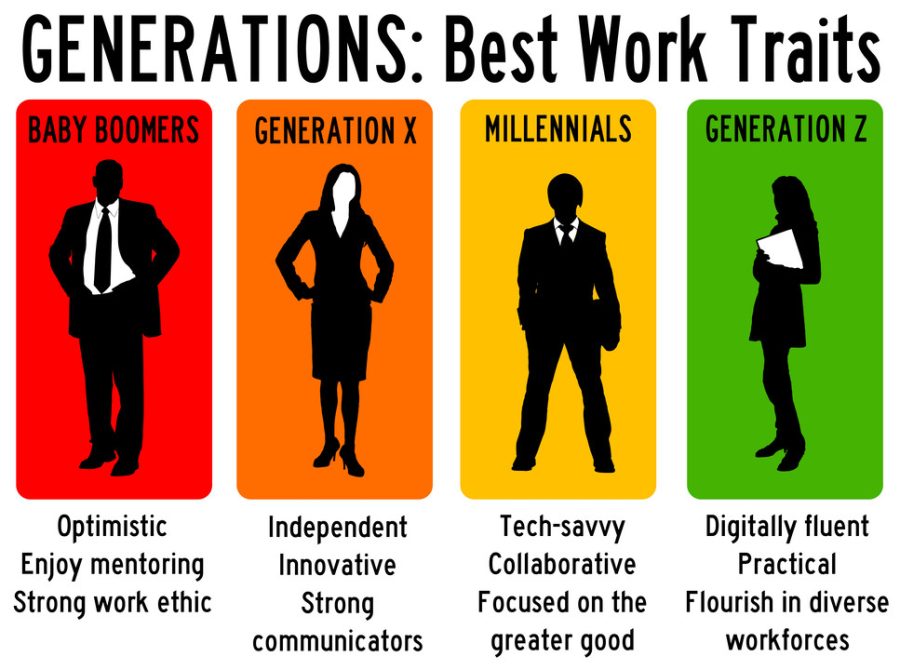Covid to Blame For Decreasing Work Ethic
Each generation has different work ethics. While Boomers focus more on getting the job done, Gen Z prioritizes well being before work.
March 22, 2023
In recent years, business owners have struggled to find enough employees and customers to continue running their businesses. Before the pandemic, Americans were working long hours, in hopes to achieve the American dream- “the idea that if you work hard, this country will make your sacrifices worth it”. But how much of that dream faded away as covid continued? In March of 2020, 8 million Americans fell under the poverty line, all due to the 22 million jobs that were lost. It wasn’t until a year later when jobs could begin trying to get back to normal, however many failed. Over half the country chose to continue staying in, whether that be out of fear of Covid, or because they had no place to go. Marketing jobs, finance, and the entertainment industry were all laid off, but had hope of coming back in a couple months. Unfortunately without strong financial support, they were not able to return, and had to close down-for good.
Businesses in Paris, Kentucky experienced this heavily, with restaurants like Trackside and Thyme Cafe closing immediately, as well as several small businesses. The small town knew it would struggle to get back on its feet, but as soon as quarantine ended, everyone sprang back into action. By the summer of 2021,most restaurants opened back up, and new shops were on the rise throughout downtown. Everything was going well, except for the fact no one could find help. Managing an operating business was difficult and nearly impossible to keep which caused them to close, once again.
In 2019, 20% of Americans were already working from home. That number largely grew during the shutdown, with 87% saying they found it easier to work from home than in-person. Tiktok inspired many to continue work from home, even when things did return to normal. Now, 71% of people currently work at home. According to a study from PEW research center, 64 percent of people who no longer work in person say they feel more motivated because of adequate workspace and fewer interruptions. More than half of these studies come from generation Gen Z who are inspiring new skills and ideas to the workplace. Their main focus is flexibility which varies work from home options, flexible schedules, and opportunities. While Millennials and Gen X care more about working and getting paid, Gen Z wants to love their jobs, or whatever they may be doing.
Both good and bad things came out of the pandemic. Closing jobs all around the country made it difficult for Americans to get back on their feet. Everyone struggled, but in the end were inspired to start fresh. More online jobs were created and helped people to begin a new start they never knew would happen. As of 2022, 26% of U.S. jobs were remote, and that number is planned to grow in the next year. 9 in 10 workers will be working remotely by the end of 2023.


